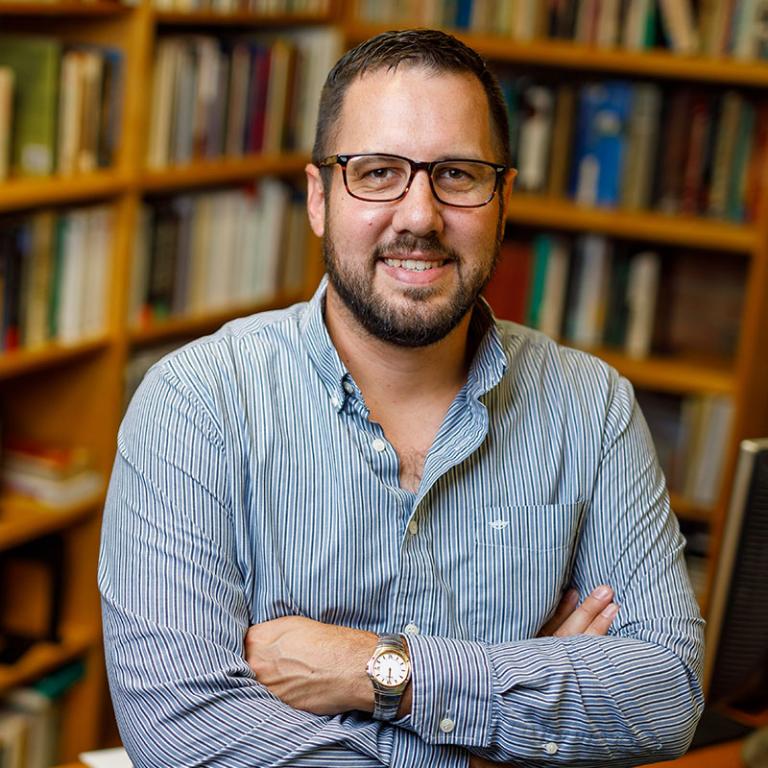[This post continues a series on Mennonite pastor and writer Melissa Florer-Bixler’s new book, Fire by Night: Finding God in the Pages of the Old Testament. If you’re just joining us, see also my introduction to the series and my posts on chapter 1 and chapter 2.]
In chapter 3 of Fire by Night, “God of Victims,” Melissa Florer-Bixler writes about a favorite story of progressive, Mennonite, pacifist pastors: God’s destruction of Sodom and Gomorrah in Genesis 19. (What’d you expect?)

But contrary to traditional (mis)readings that use this passages as a “clobber” text, Florer-Bixler writes,
Genesis 18–19 is a case study in oppressive systems, a narrative that invites us to consider a violence so pervasive, so destructive for the people who are caught up in it, that it takes a miraculous and devastating intervention from God to undo it. In this way, I’ve found that the story of Sodom and Gomorrah reorients my notions of justice and compassion. It’s a story that draws me into a longing for both God’s fiery justice and God’s miraculous redemption. (56)
For Florer-Bixler, what’s striking about this story is how God acts in response to the “outcry” from the oppressed: “We pause here to listen to the inhabitants of the city who are desperate for liberation, for salvation. We imagine the terror of life in that community. In Genesis we can glean that predatory sex is daily fare for the vulnerable people of Sodom” (57).
Finding God in this story, listening to the text today, means noticing how “systems of routinize violence are all around us” (58) and how “these powerful forces work through human beings but are supported by ideologies and philosophies that operate within bureaucratic institutions and offices” (60). As a prime example of these forces in our society, she draws our attention to Michelle Alexander’s masterful study of systemic racism in the US prison system, The New Jim Crow. “Sodom,” writes Florer-Bixler, “is prison doors, green plastic trays, pat-downs, expensive phone calls, lines of toddlers in the county jail waiting for their mothers during visiting hours. When Genesis describes seething crowds in Sodom, it is a caricature of evil” (62–63).
I find Florer-Bixler’s reading of the story as God’s confrontation with systemic evils compelling. The question it raised for me is, How do we confront it? In the story, we have a nice deus ex machina. But when I hear the outcries of the oppressed today, I often feel helpless. I’d like the God of victims, the God of fire, to show up and burn down the whole system and build a new one on the foundations of justice and compassion, but that doesn’t seem to be how God works today.
Jesus proclaimed that the Spirit of the Lord was upon him to proclaim release for the captives, and yet I read that a sixth child has died in custody at the US-Mexico border.
The letter to the Ephesians states that “we are not fighting against flesh-and-blood enemies, but against evil rulers and authorities of the unseen world, against mighty powers in this dark world, and against evil spirits in the heavenly places” (6:12 NLT), but it seems like those mighty powers in this dark world are only getting stronger by the day.
Florer-Bixler’s own work battling these powers in North Carolina is inspiring, as is the work of my new friends Shannan and Cory Martin here in Northern Indiana (more on them in a later post). I do what I can here in my small corner of South Bend through Keller Park Church, but it often feels like it did a year and a half ago at the church. After days of rain on top of two feet of snow in February 2018, we had massive flooding in the church basement. We set up four pumps and ran pipes up the stairs to pump the water onto the street. For over two weeks, those pumps ran day and night. The water would flow onto the sidewalk, down the street, and into the drain, where it joined the deluge of water that rose the water table so high that our basement walls couldn’t keep it out.












